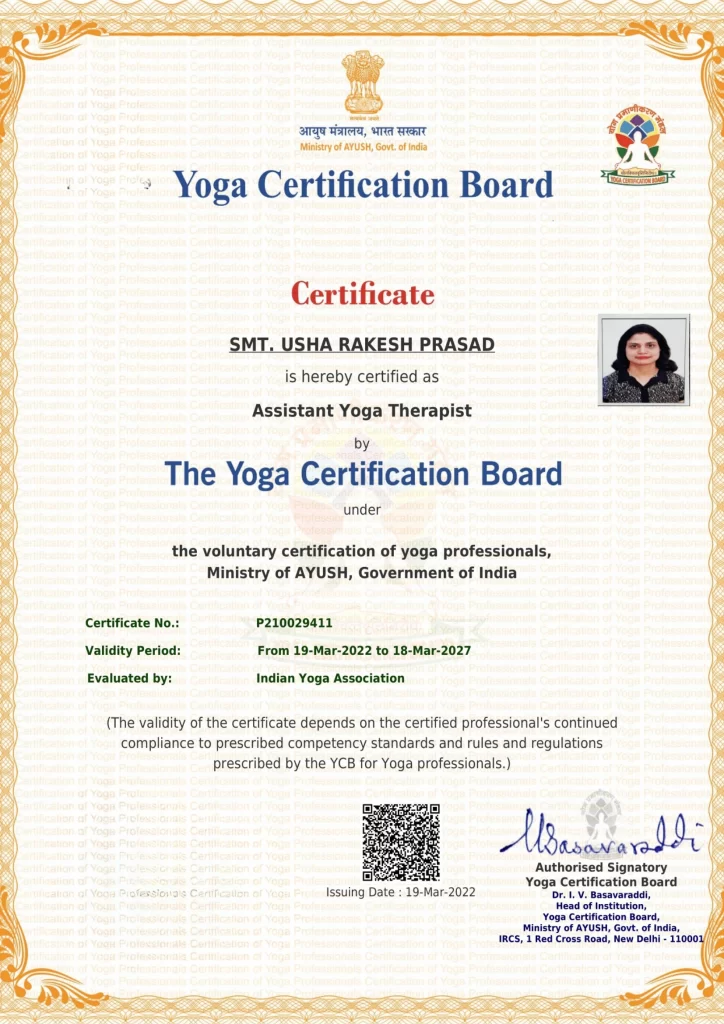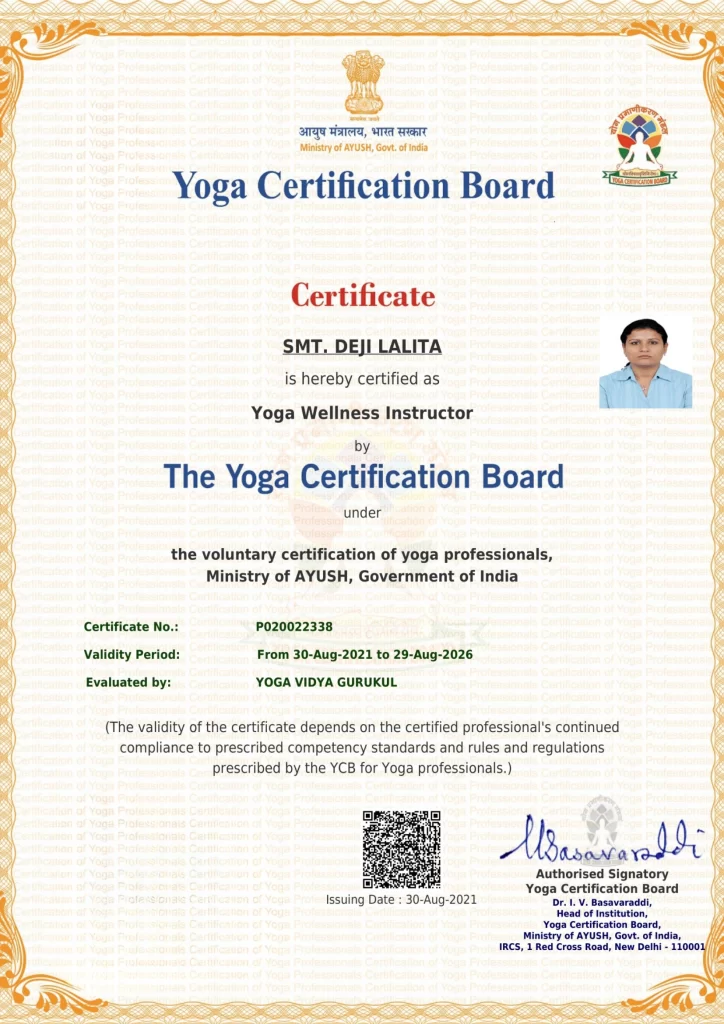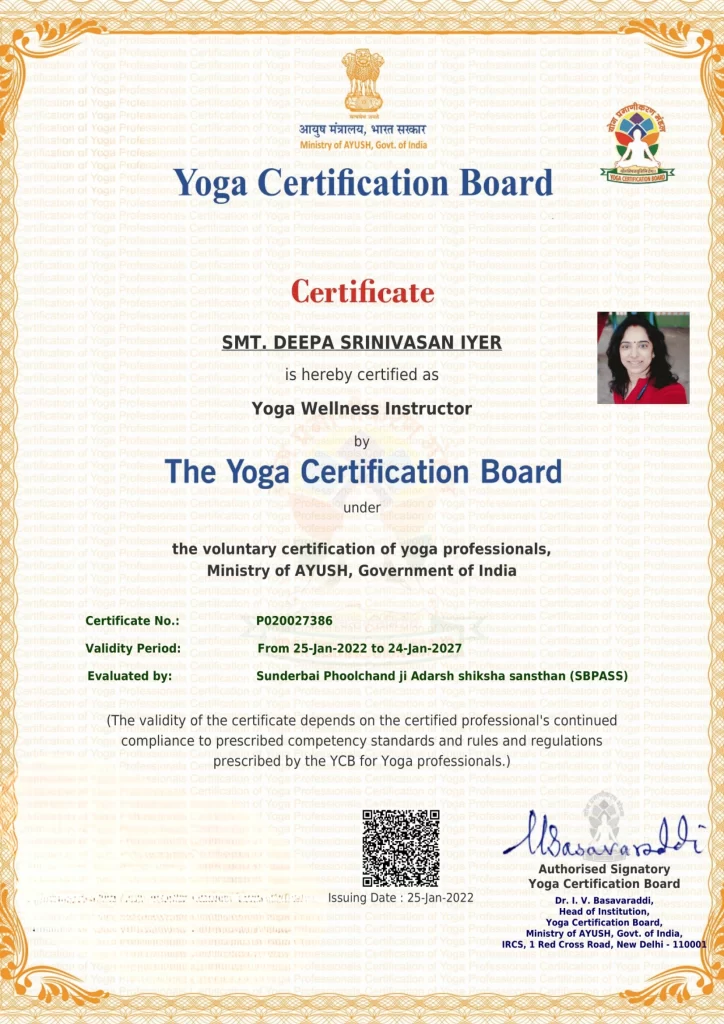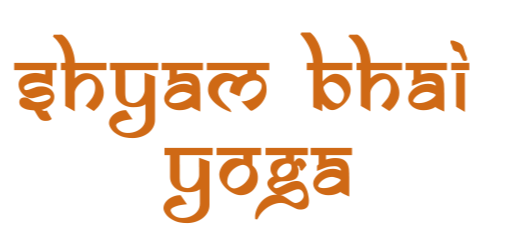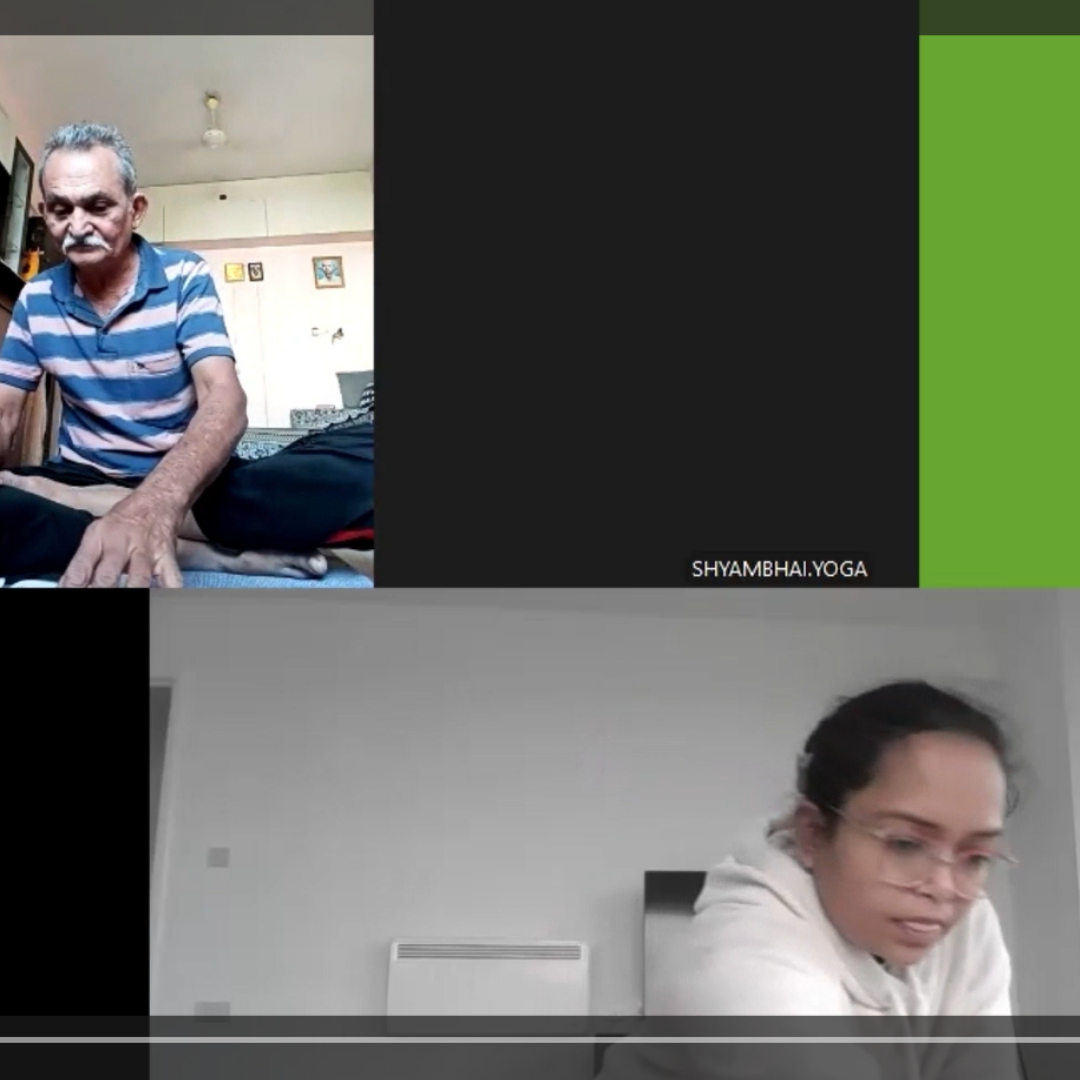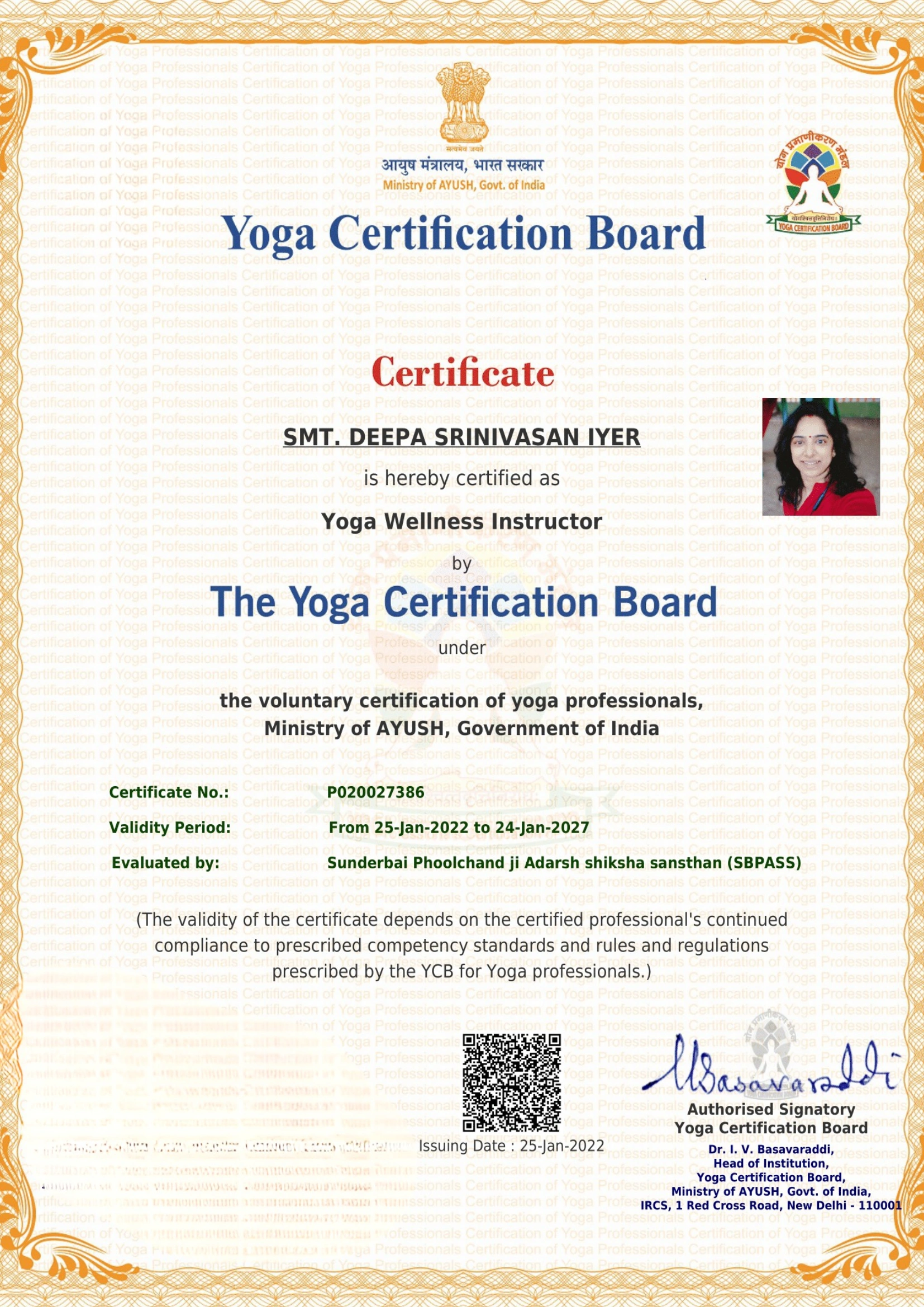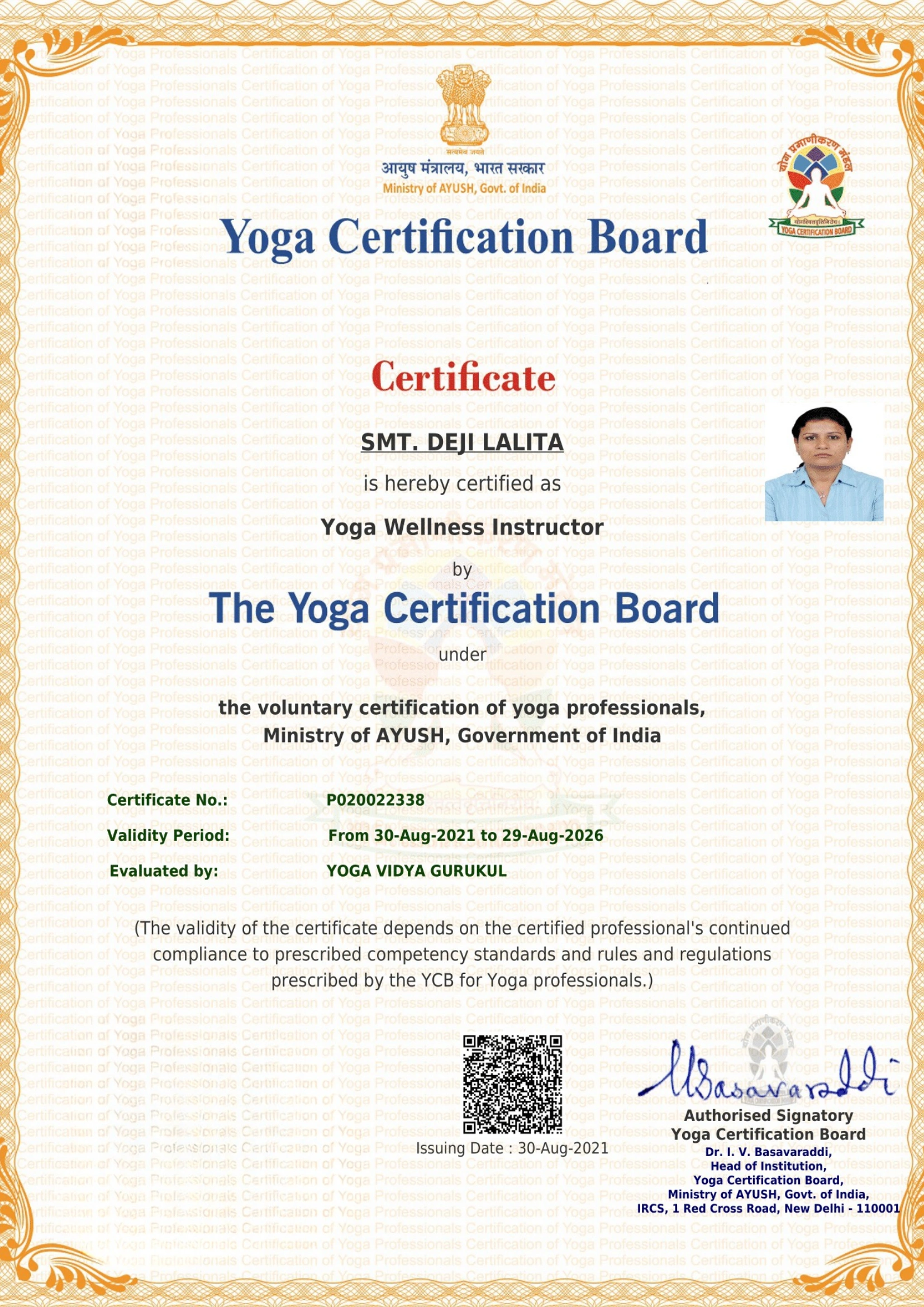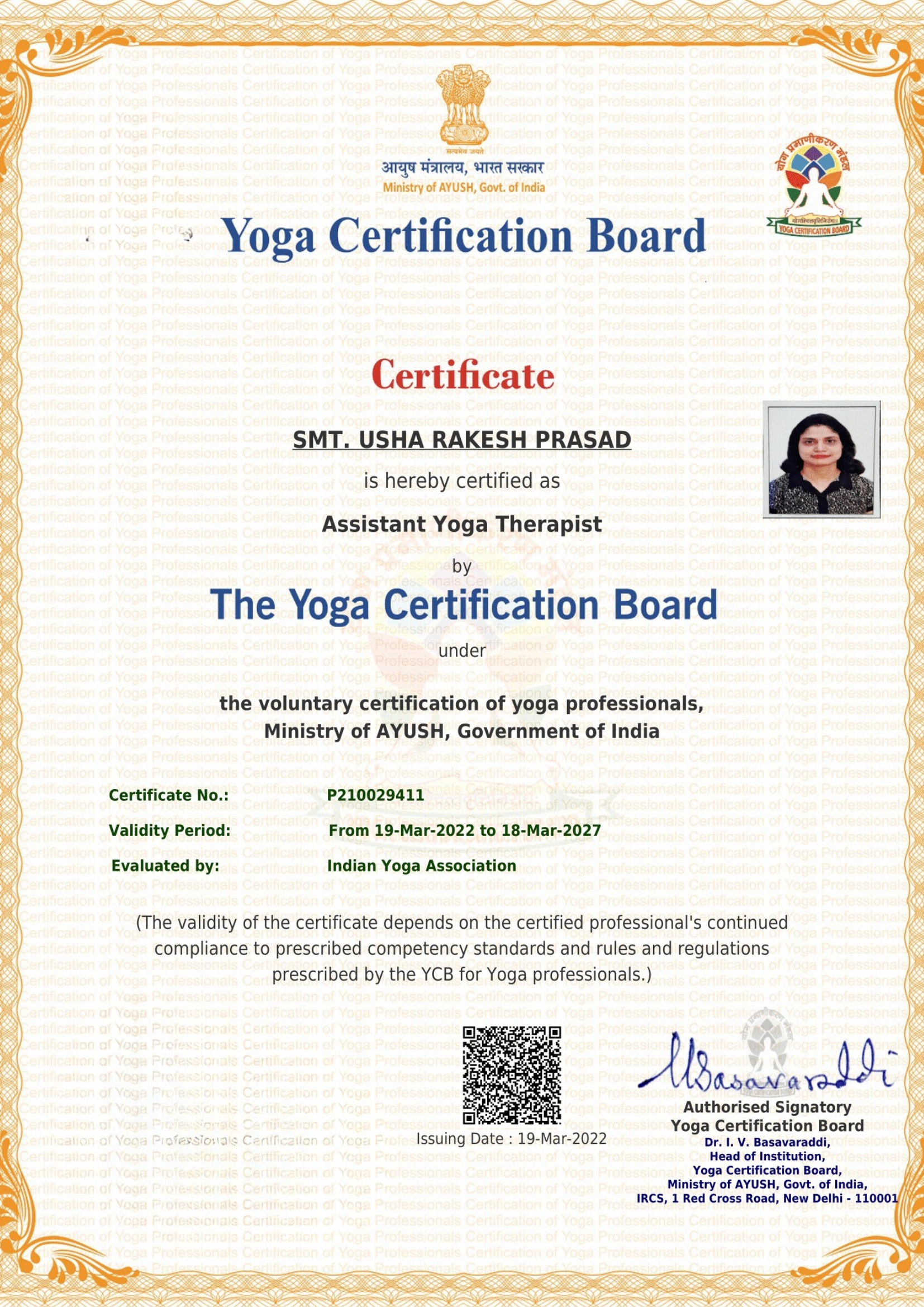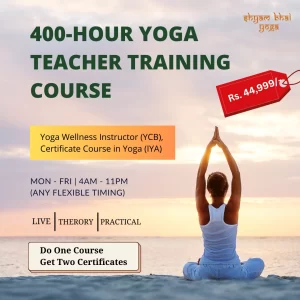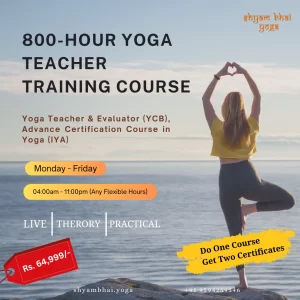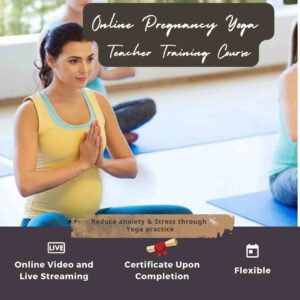Online Yoga Teacher Training – 200 Hrs – Yoga Protocol Instructor
₹24,999.00
Shyambhai’s 200 Yoga Protocol Instructor (YCB), Foundation Course in yoga (IYA) Certification Course equips you with the skills to teach yoga confidently and deepen your practice. Designed for all levels, this Yoga Certification Board (YCB)-recognized program includes live sessions, a comprehensive curriculum, and flexible schedules. Learn yoga philosophy, asanas, pranayama, anatomy, and teaching techniques—all from the comfort of your home. Whether you’re looking to become a certified yoga teacher or simply deepen your practice, this course provides the perfect foundation for your yoga journey.
Unit 1: Introduction to Yoga and Yogic Practices
1.2 Yoga: Its origin, history and development.
1.3 Guiding principles to be followed by Yoga practitioners.
1.4 Principles of Yoga (Triguna, Antahkarana-chatustaya, Tri-Sharira/ Panchakosha).
1.5 Introduction to major schools of Yoga (Jnana, Bhakti, Karma, Patanjali, Hatha).
1.6 Introduction to Yoga practices for health and well being.
1.7 Introduction to Shatkarma: meaning, purpose and their significance in Yoga Sadhana.
1.8 Introduction to Yogic Sukshma Vyayama, Sthula Vyayama and Surya Namaskara.
1.9 Introduction to Yogasana: meaning, principles, and their health benefits.
1.10 Introduction to Pranayama and Dhyana and their health benefits.
Unit 2: Introduction to Yoga Texts
2.2 Introduction and study of Bhagavad Gita including memorization of selected Slokas (Chapter II -47, 48, 49, 50 and 70).
2.3 Introduction and study of Hathpradipika.
2.4 General Introduction to Prasthanatrayee.
2.5 Concepts and principles of Aahara (Diet) in Hathapradipika and Bhagawadgita (Mitahara and Yuktahara).
2.6 Significance of Hatha Yoga practices in health and well being.
2.7 Concept of mental wellbeing according to Patanjala Yoga.
2.8 Yogic practices of Patanjala Yoga: Bahiranga and Antaranga Yoga.
2.9 Concepts of healthy living in Bhagwad Gita.
2.10 Importance of subjective experience in daily Yoga practice.
Unit 3: Yoga for Health Promotion
3.2 Meaning and Means of health promotion and role of Yoga in health promotion.
3.3 Yogic positive attitudes (Maitri, Karuna, Mudita, Upeksha).
3.4 Concept of bhavas (Dharma, Jnana, Vairagya, Aishvarya) and their relevance in well being.
3.5 Dincharya and Ritucharya with respect to Yogic life style.
3.6 Holistic approach of Yoga towards health and diseases.
3.7 Introduction to First aid and Cardio Pulmonary Resuscitation (CPR).
3.8 Yogic management of stress and its consequences.
3.9 Yoga in prevention of metabolic and respiratory disorders.
3.10 Yoga for personality development.
Unit 4: Practical (Part A)
4.1 Prayer: Concept and recitation of Pranava and hymns.
4.2 Yoga Cleansing Techniques
– Knowledge of Dhauti, Neti and practice of Kapalabhati.
4.3 Yogic Sukshma Vyayama and Sthula Vyayama
a. Yogic Sukshma Vyayama (Micro Circulation Practices)
– Neck Movement
– Griva Shakti Vikasaka (I,II,III,IV)
– Shoulder Movement
– Bhuja Valli Shakti Vikasaka
– Purna Bhuja Shakti Vikasaka
– Trunk Movement
– Kati Shakti Vikasaka (I, II, III, IV, V)
– Knee Movement
– Jangha Shakti Vikasaka (II-A&B)
– Janu Shakti Vikasaka
– Ankle movement
– Pada-mula shakti Vikasaka – A&B
– Gulpha-pada-pristha-pada-tala shakti Vikasaka
b. Yogic Sthula Vyayama (Macro Circulation Practices)
– Sarvanga Pushti
– Hrid Gati (Engine Daud)
4.4 Yogic Surya Namaskara
4.5 Yogasana
– Tadasana, Vrikshasana, Ardha Chakrasana, Padahastasana, Kati Chakrasana, Trikonasana
– Dandasana, Sukhasana, Padmasana, Vajrasana
– Bhadrasana, Mandukasana, Ushtrasana, Shashankasana, Uttana Mandukasana
– Paschimottanasana, Purvottanasana
– Vakrasana, Gomukhasana
– Bhujangasana, Shalabhasana, Makarasana
– Pavanamuktasana, Uttanapadasana, Ardha Halasana, Setubandhasana
– Vipareetakarani, Saral Matsyasana, Shavasana
4.6 Preparatory Breathing Practices
– Sectional breathing (abdominal, thoracic and clavicular)
– Yogic deep breathing
4.7 Pranayama
– Concept of Puraka, Rechaka and Kumbhaka
– Anuloma Viloma/Nadi Shodhana
– Sheetalee (without Kumbhaka)
– Bhramari (without Kumbhaka)
4.8 Understanding of Bandha
– Jalandhara Bandha
– Uddiyana Bandha
– Mula Bandha
4.9 Understanding of Mudra
– Hasta Mudras (chin, Chinmaya, Brahma, adi, jnana, Dhyana and Nasika)
4.10 Practices leading to Meditation and Dhyana Sadhana
– Recitation of Pranava & Soham
– Recitation of selected hymns, invocations and prayers from Vedas & Upanishadas
– Body and breath awareness
– Yoga Nidra
Unit 4: Practical (Part B)
– Essentials of good lesson plan: concepts, needs, planning of teaching Yoga (Shatkriya, Asana, Pranayama & practices leading to Dhyana)
– Principles of teaching Yoga protocol to different groups (beginners, children, youth, women, Geriatric population, and special attention group)
– Preparation for a Yoga class (before and during the class)
– Factors influencing yoga teaching
– Class management in Yoga: its meaning and needs
– Conducting yoga practical lessons: Precautions & Contraindications of practices
– Salient features of Ideal Yoga Instructor
– Models of ideal Yoga lesson plans
You can download the syllabus here
Yes, all classes are conducted online via Zoom. This allows you to participate from the comfort of your home while engaging in live, interactive sessions with instructors and fellow students.
2. Do I need prior yoga experience to join this program?
No prior teaching experience is required. This program is designed for beginners and intermediate practitioners looking to deepen their practice and start their journey as yoga teachers.
3. What materials and equipment will I need for the training?
You’ll need:
- A reliable internet connection.
- A device with Zoom installed (laptop, tablet, or smartphone).
- A yoga mat
- A quiet space where you can practice and study uninterrupted.
4. How is the 200-hour training structured?
The training includes a combination of live Zoom sessions, pre-recorded videos, assignments, and practical teaching exercises. The schedule is designed to balance flexibility with guided learning, making it manageable for students with other commitments.
5. Will I receive certification after completing the course?
Yes! Upon successfully completing the training, you will receive a 200-hour yoga teacher training certification, recognized by Yoga Alliance, enabling you to teach yoga professionally and confidently.
6. Can I interact with instructors during the course?
Absolutely! The course includes live interactive sessions where you can ask questions, receive feedback, and engage in discussions with instructors and fellow participants. Personalized mentoring is also available to ensure you get the most out of the program.
7. Is there any post-course support or community access?
Yes, after completing the program, you will have access to an exclusive community of yoga practitioners and instructors. This network provides ongoing learning opportunities, teaching resources, and professional support to help you continue your journey.
If you have more questions or need further assistance, feel free to contact us. We’re here to support you every step of the way!
